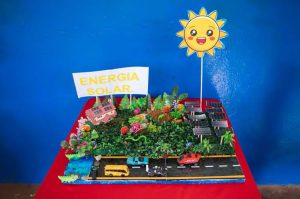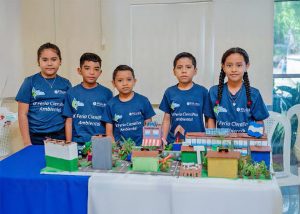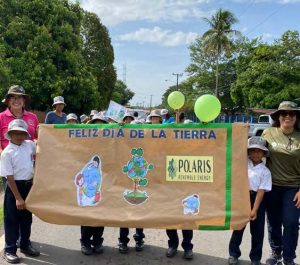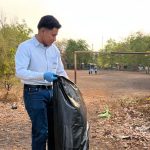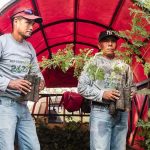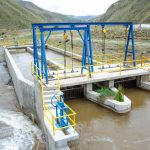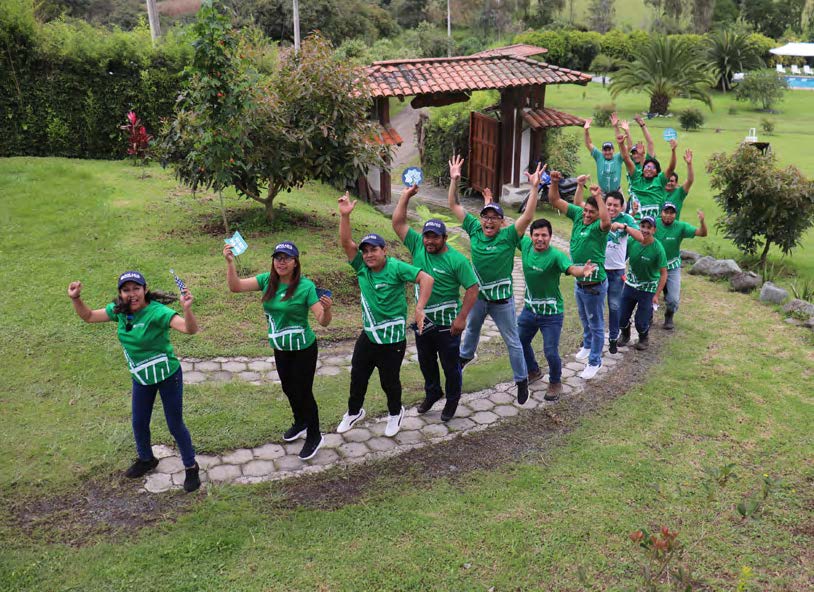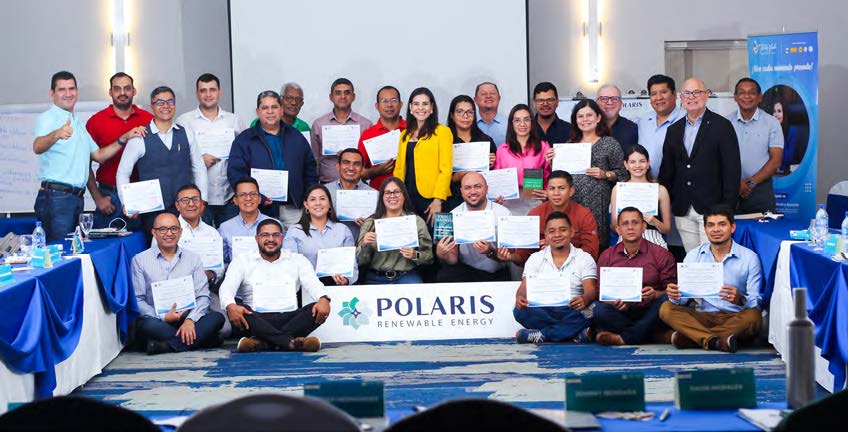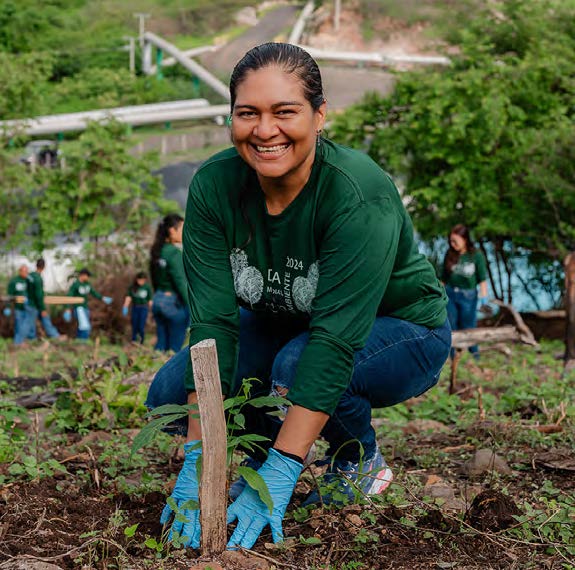In the communities where we operate, agriculture generally plays a very important role in the local economy and is a key driver of our contributions. As a renewable energy company, it is very important for us to support small producers in gaining knowledge to apply sustainable agricultural practices. Over the years, this has meant establishing partnerships with specialized entities in this field and supporting these groups of producers to improve and strengthen their practices. This not only results in economic improvements but also enhances how they can respect and promote environmentally friendly practices through their methods.
We have worked on agricultural projects in Nicaragua and Peru14 for several years, and in 2024 we continued with this line of work.
In the case of Nicaragua, our focus in recent years has been on watermelon production. This year, we established a new partnership with a consulting firm specializing in environmental and agronomic practices. This creates perfect synergy for our vision of empowering producers in sustainable agriculture. With this year?s project focus, 30 producers benefited, prioritizing those who are not first-degree relatives to ensure the project?s reach was expanded.
The main outcomes were that the beneficiaries received technical training to manage their crops sustainably and in an environmentally friendly manner; the implementation of agroforestry systems was encouraged; and a manual on sustainable agriculture was created to systematize the project. In parallel, this year we initiated a pilot project to promote beekeeping practices in the area. In the last years, we have noticed an increase in forest fires in the region, and when our emergency brigades arrive to provide support, they often find that the fires were caused by artisanal beekeeping practices. This, along with the economic impact of strengthening another sector, motivated us to start the pilot beekeeping project. Through a partnership with a specialized consulting firm, we conducted a technical diagnostic assessment, situational analysis, and feasibility study to promote sustainable beekeeping activities in the communities we influence. As part of the pilot, we worked with four beekeepers from three communities and identified additional potential beneficiaries for the expansion of the project in the coming years.
Similarly, in Peru, in the communities near the El Carmen and 8 de Agosto Hydroelectric Plants, in 2024, we managed to reach a total of 50 beneficiaries, and along with this, work groups were organized, including two management committees: the Coffee Producers Committee and the Beekeepers Committee, both led by women.
The coffee project, which benefits 50 producers, in – volved providing technical assistance and the neces – sary inputs for planting, processing, and marketing the product. Field schools were established, with the purpose of transferring technologies and agroeco – logical practices, incorporating the concept of na – ture-based solutions and circular economy.
As for the beekeeping project, which works with 30 beekeepers, it provided technical assistance in bee breeding. Additionally, in 2024, the construction of a honey collection center was completed. This facility serves 30 beekeepers during each annual campaign for the collection of organic honey, with the purpose of weighing, packaging and labelling.
Beekeeping projects, beyond their socio-economic benefits, have significant positive environmental impacts, especially in promoting biodiversity. The hives play a crucial role in ecosystem conservation, as bees pollinate a diverse array of plants, many of which are essential for maintaining ecological balance. Sustainable beekeeping practices also contribute to soil health and support the regeneration of native plant species, thereby strengthening local biodiversity and enhancing the resilience of ecosystems to natural disasters. In this way, beekeeping not only aids in the survival of bee populations but also plays a vital role in environmental conservation.


